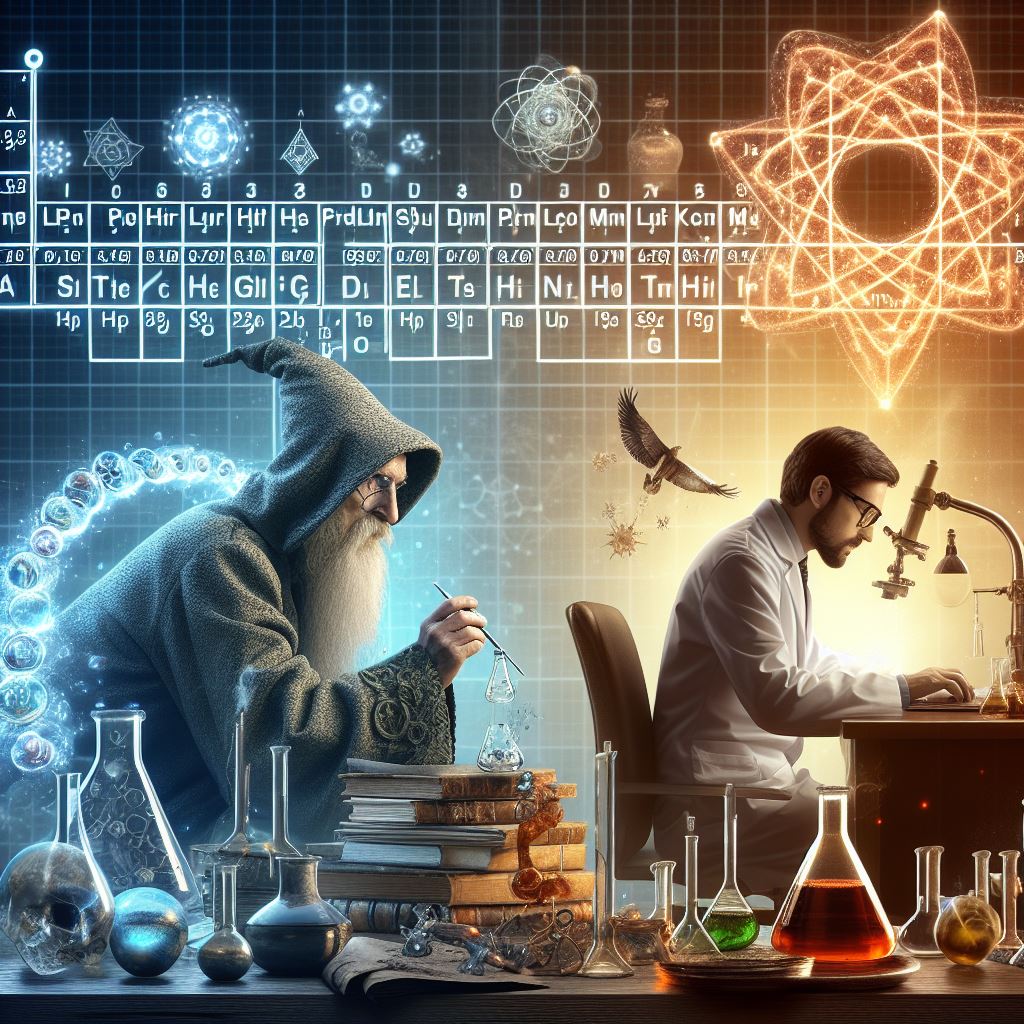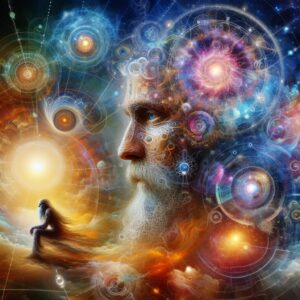
I often encounter misconceptions about alchemy, some see it as a mere relic of the past, while others credit it as the precursor to modern chemistry. Here’s the truth: alchemy is both these things and so much more. Its definition isn’t set in stone; it’s evolved over centuries, crossing cultural and disciplinary lines.

Historically, alchemy’s early story is a tapestry woven from mythology, philosophy and prescientific pursuits. Its origins are ancient, with roots in Hellenistic Egypt, further cultivated by Islamic scholars and eventually finding its way to European intellects. The alchemy study has always straddled the line between empirical experimentation and mystical exploration, aiming to understand not just the composition of substances, but the fundamental principles of nature itself.
The question of who discovered alchemy is akin to asking who first gazed at the stars in wonder – it’s nearly impossible to credit a single individual. However, legendary figures like Hermes Trismegistus are often mentioned in alchemical texts as icons of wisdom. Whether he was a real historical figure or a symbolic one, Hermes represents the synthesis of Greek and Egyptian knowledge that’s central to alchemical thought.
Alchemy’s transformation over the ages is a testament to its resilience and adaptability. From the practical alchemists of antiquity, whose experiments with materials laid the groundwork for scientific method, to the thinkers of the Renaissance who injected new life into alchemical studies, there’s a lineage of knowledge that’s undeniable. The enlightenment eventually ushered in a wave of rationalism, seeing alchemy give way to the burgeoning field of chemistry.
The picture that emerges is multifaceted, and joining these dots provides a richer understanding as we delve into the specifics. In the next section, I’ll take you closer to the world of the alchemists. These individuals, some famous and others shrouded in mystery, dedicated their lives to the transmutation of materials and arguably, shaped the course of scientific history.
The Alchemist’s Quest: Turning Lead into Gold

Alchemy’s most famous pursuit involved the transmutation of common metals into precious ones, particularly the attempt to convert lead into gold. This process symbolized not just the promise of wealth but the alchemist’s mastery over the natural world. Alchemists, the practitioners of this craft, were often multi-disciplinary scholars who blended philosophy, chemistry, physics, astrology, and art.
During its prime, several notable figures contributed to the study and practice of alchemy. Among them, Isaac Newton stands out not just for his acclaimed laws of motion and gravity but for his less commonly known exhaustive alchemical research. Figures like Nicolas Flamel, who is surrounded by legends of discovering the Philosopher’s Stone, also capture the imagination for the supposedly mystical elements of their work.
The literature on alchemy provides a window into its rich tapestry of ideas and the minds devoted to them. ‘The Alchemyst’ by Michael Scott, although fictional, offers an engaging portrayal of Alchemy’s mystical elements. On the non-fiction front, Carl Jung’s psychological exploration in ‘Psychology and Alchemy’ examines alchemical symbolism and its relevance to psychological processes.
While the pursuit of converting lead into gold might be what alchemy is most known for, its scope extends beyond. This is where the distinction between alchemy and spiritual alchemy becomes important. While both share common roots and a history interwoven with the search for knowledge, their applications and implications diverge significantly, thus warranting a deeper look at the less tangible, more introspective aspect of alchemy in the following section.
The Metaphysical Transformation:
Exploring Spiritual Alchemy

At its core, spiritual alchemy involves refining one’s inner self, much like an alchemist refines metals. The process is symbolic of purifying the human soul, removing impurities to reveal a perfected spirit. This form of alchemy doesn’t rely on tangible substances but instead focuses on spiritual discipline and enlightenment.
Where traditional alchemy and its practitioners have largely faded into the backdrop of history, spiritual alchemy continues to thrive. It has woven its way into the fabric of various modern self-help and spiritual movements. Concepts derived from spiritual alchemy are often used to describe the journey of personal development and self-improvement.
As we apply the principles of spiritual alchemy to our lives, we are not just seeking knowledge but wisdom. It’s about achieving a higher state of being and, in a sense, becoming the metaphorical gold that alchemists of old were so desperately trying to create.
In conclusion, alchemy, whether historical or spiritual, is a testament to humanity’s eternal quest for transformation and understanding. Through the lens of alchemy, both physical and spiritual, we see a relentless pursuit of knowledge and the betterment of oneself. Embracing this alchemical mindset in our daily lives can lead to profound personal growth and an enriched sense of being.
Love & Light being sent your way!
~Nadany



